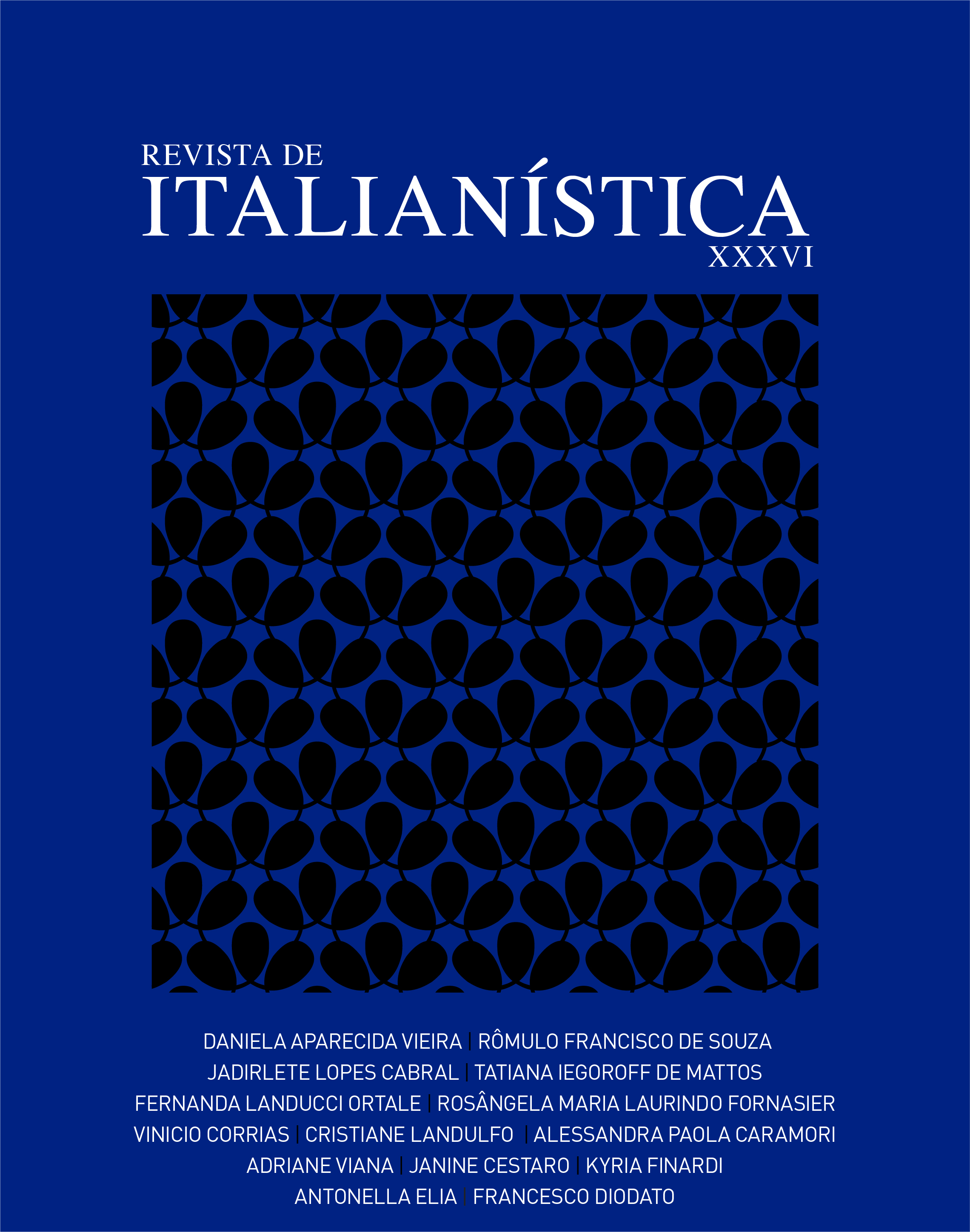The development of student autonomy in classes of Italian as an additional language
DOI:
https://doi.org/10.11606/issn.2238-8281.i36p5-16Keywords:
Teaching and learning, Italian as an additional language, Learner's autonomyAbstract
According to Freire (1996), Mezzadri (2003), and Kumaravadivelu (2006), one of the most important goals of teaching and learning process is to promote learners’autonomy. Therefore, this paper aims to present theoretical and practical reflections on the importance of the development of students’autonomy in Italian classes (Italian as an additional language). Regarding the theoretical aspects, some definitions of autonomy in didactic-pedagogical context will be addressed. After that, the notions of foreign language, second language, and additional language will be addressed, and we will explain why, in this text, the last term was chosen. Regarding the practical aspects, we will show some data from a case study carried out during the first semester of 2015 at “Italian on Campus”, a university extension course offered by the Faculty of Philosophy, Languages and Human Sciences of the University of São Paulo. The analysis of the data collected, which was based on the theoretical postulates discussed in this paper, seems to indicate that, during the classes, students could construct knowledge in Italian and about this language, and, at the same time, they could reflect on their own process of linguistic learning. That has probably helped students to become more autonomous.
Downloads
References
AMADO, J. da S. Introdução à investigação qualitativa em educação. Coimbra: Universidade de Coimbra, 2009.
BAKHTIN, M. Discourse in the novel. In: HOLQUIST, M. (org.). The dialogic imagination. University of Texas Press, 1981, p. 259-422.
BALBONI, P. Dizionario di Glottodidattica. Perugia: Guerra Edizioni, 1999.
BORNETO, C. S. (org.). C’era una volta il metodo. Tendenze attuali nella didattica delle lingue straniere. Roma: Carocci, 1998.
FREIRE, P. Pedagogia da autonomia – Saberes necessários à prática educativa. Rio de Janeiro: Paz e Terra, 1996.
KUMARAVADIVELU, B. Understanding Language Teaching: from Method to Postmethod. Mahwah, New Jersey: Lawrence Erlbaum Associates, 2006.
LEFFA, V. J. Aprendizagem de línguas mediada por computador. In: LEFFA, V. J. (org.). Pesquisa em Linguística Aplicada – Temas e Métodos. Pelotas: Educat, 2006, p. 5-30.
LEFFA, V. J. Quando menos é mais: a autonomia na aprendizagem de línguas. In: NICOLAIDES, C. (org.). O desenvolvimento da autonomia no ambiente de aprendizagem de línguas estrangeiras. Pelotas: UFPEL, 2003, p. 33-49.
LEFFA, V. J; IRALA, V. B. O ensino de outras línguas na contemporaneidade: questões conceituais e metodológicas. In: LEFFA, V. J.; IRALA, V. B. (orgs.). Uma espiadinha na sala de aula: ensinando línguas adicionais no Brasil. Pelotas: Educat, 2014.
MARIANI, L. Portfolio. Strumenti per documentare e valutare cosa si impara e come si impara. Bologna: Zanichelli, 2000.
MARTINS, M. F.; VARANI, A. Professor e pesquisador: considerações sobre a problemática relação entre ensino e pesquisa. In: Revista Diálogo Educ. Curitiba, 2012, v. 12, nº 37, p. 647-680. Disponível em: . Acesso em 04 jan. 2017.
MEZZADRI, M. I ferri del mestiere. Corso di (auto) formazione per l’insegnante di lingua. Perugia: Guerra Edizioni, 2003.
OXFORD, R. Strategy Inventory for Language Learning – SILL. Disponível em: <https://richarddpetty.files.wordpress.com/2010/03/sill-english.pdf>. Acesso em 17 abr. 2018.
PAIVA, V. L. M. de O. Autonomia e complexidade. In: Linguagem e Ensino, Vol. 9, n° 1, p.77-127, 2006.
VIEIRA, D. A. Dos estilos e estratégias de aprendizagem à didatização de materiais para o ensino do italiano língua estrangeira na pedagogia pós-método. 2017. 246 f. Tese (Doutorado) – Faculdade de Filosofia, Letras e Ciências Humanas da Universidade de São Paulo, São Paulo, 2017.
Downloads
Published
Issue
Section
License
Copyright (c) 2018 Revista de Italianística

This work is licensed under a Creative Commons Attribution-NonCommercial-NoDerivatives 4.0 International License.
A revista retém os direitos patrimoniais dos artigos e os publica simultâneamente sob uma Licença Creative Commons-Atribuição-Não Comercial-Sem Derivações.



